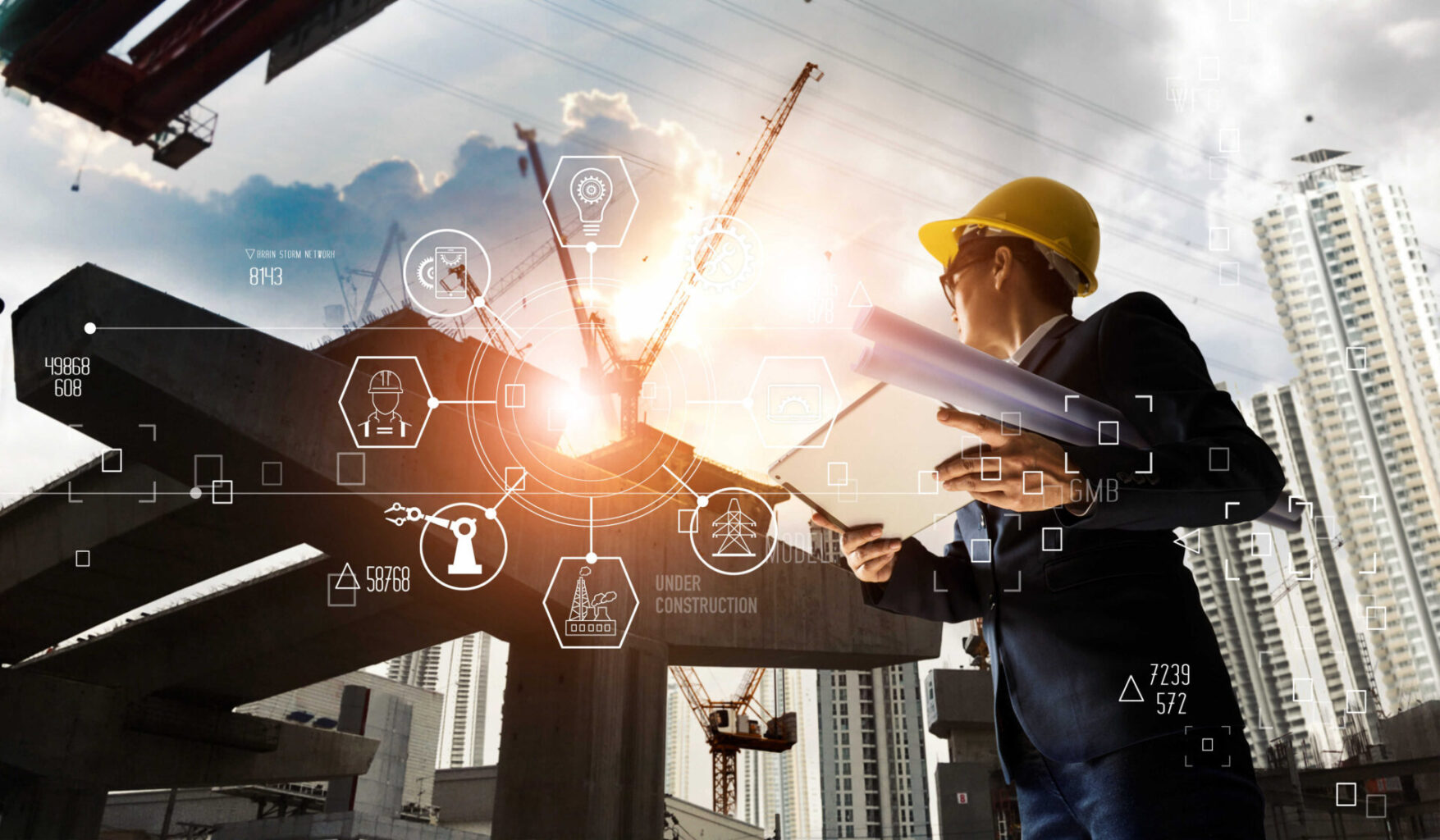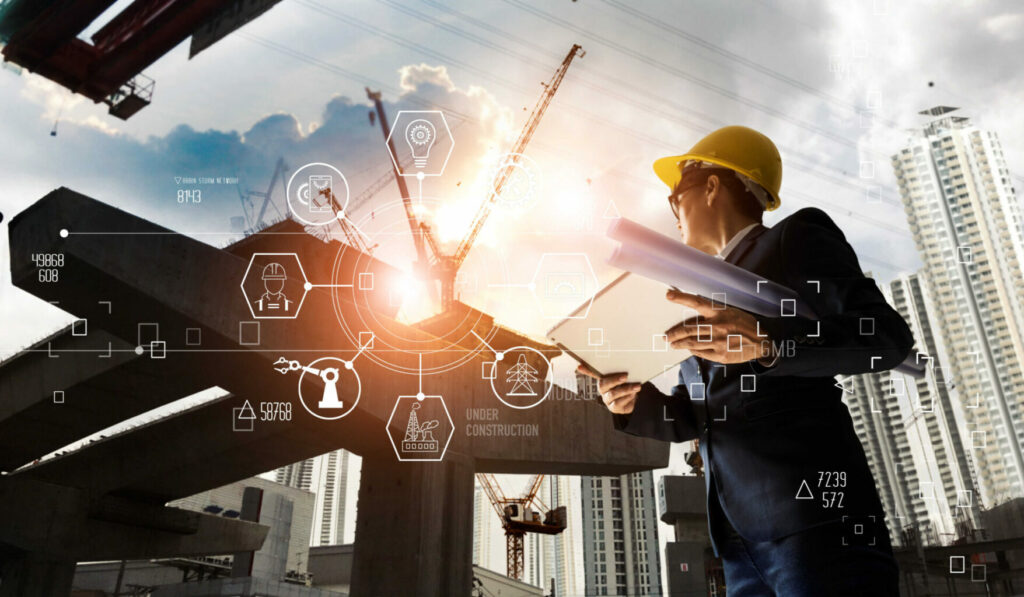The IoT (Internet of Things) is quickly shaping our future, and the construction industry stands to benefit greatly from this digital shift. In this post, we’ll outline how building owners, professionals and IoT tech-makers alike can work together to capitalize on the opportunities that IoT bring.
As the construction industry begins to adopt new technologies, it’s important to understand how the Internet of Things (IoT) can be used to improve operations. IoT is a network of physical objects that are connected to the internet and can collect and exchange data. This data can be used to gain insights into how construction projects are progressing and identify areas where improvements can be made.
There are many potential applications for IoT in construction, such as:
- Monitoring construction equipment to ensure it is being used efficiently
- Tracking the location of construction materials and assets
- Identifying potential safety hazards on construction sites
- Monitoring weather conditions to adjust work schedules accordingly
The benefits of using IoT in construction include improved safety, efficiency, and productivity. By leveraging data collected by IoT devices, construction companies can make better decisions that lead to more successful projects.
Extending Construction Workflows with IoT
IoT can revolutionize construction workflows by streamlining the flow of information between different stakeholders, automating data collection and analysis, and providing real-time visibility into the construction process.
One way that IoT can extend construction workflows is by integrating with existing enterprise software systems. For example, sensors can be used to automatically capture data about material usage, weather conditions, and equipment performance. This data can then be fed into a project management system to help decision-makers track progress, identify issues, and make adjustments to the construction plan in real time.
In addition, IoT can automate data collection and analysis for a variety of applications such as quality control, safety compliance, and energy efficiency. For example, sensor data can be used to monitor concrete curing processes or identify areas of high energy consumption. This data can then be analysed to improve quality control procedures or optimize energy use in the construction process.
Finally, IoT can provide real-time visibility into the construction process through the use of web-based dashboards and mobile applications. These tools allow project managers to track progress, view live sensor data, and receive alerts when issues arise. This information can help reduce delays and increase efficiency in the construction process.
Using IoT to Create a Smart Construction Ecosystem
The Internet of Things has the potential to revolutionize the construction industry. By connecting devices and sensors to the internet, construction companies can collect data in real-time to improve safety, optimize construction processes, and manage assets more effectively.
In a recent survey of construction executives, 49% said they were already using IoT technology on their projects, and another 36% said they planned to do so in the next two years. The most popular applications of IoT in construction are asset tracking (39%), worker safety (38%), and project management (35%).
Asset tracking helps construction companies keep track of tools, materials, and equipment. This information can be used to improve inventory management and reduce theft. In one example, a company called Site Sense developed an IoT system that uses RFID tags to track tools and equipment. Construction managers can use this information to see which tools are being used most frequently and where they are located on the job site.
Worker safety is another important application of IoT in construction. Construction is one of the most dangerous industries in the world, with a fatality rate of 9.4 per 100,000 workers in 2017. By collecting data on worker location and activity, construction companies can develop safety protocols to help prevent accidents.
For example, some companies are using wearable devices equipped with sensors to track worker movements. If a worker falls or is injured, the device can immediately send an alert to supervisors.
Building the Home of the Future with Industry Trends
The construction industry is always looking for ways to build homes faster, cheaper, and better. With the rise of the internet of things (IoT), there are new opportunities to revolutionize the construction industry with connected devices and smart technology.
One way that IoT can help is by automating tasks that are currently done manually. For example, construction workers often have to stop what they are doing to measure dimensions or levels. With IoT sensors, these measurements could be taken automatically and sent to the worker’s device. This would free up time for other tasks and help reduce errors.
Another way that IoT can help is by providing real-time data about the construction process. For example, sensors can be used to monitor the moisture content of concrete as it cures. This information can be sent to a central database so that workers can see where problems are occurring and make adjustments accordingly.
Ultimately, IoT can help make the construction process more efficient and effective. By automating tasks and providing real-time data, workers will be able to work smarter, not harder. And when construction companies adopt these technologies, they will be able to build homes faster and more cheaply than ever before.
Conclusion
The construction industry is an ever-evolving field that is continuously being shaped by new technologies. The Internet of Things (IoT) is one such technology that has the potential to revolutionize the construction industry. With IoT, construction companies can improve safety, efficiency and productivity on the job site. In addition, IoT can help construction companies manage their assets and resources more effectively. As the construction industry continues to evolve, it will be interesting to see how IoT plays a role in shaping the future of this field.



2 thoughts on “The Impact of IoT on the Construction Industry”